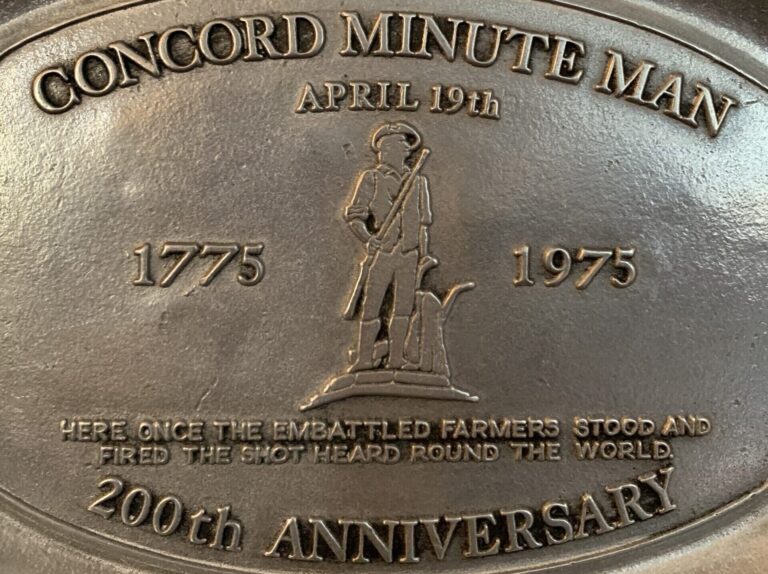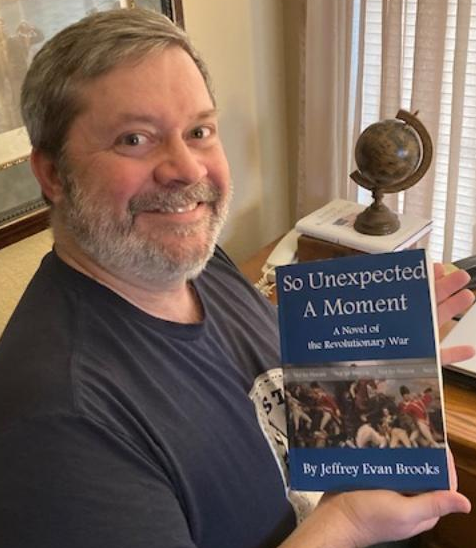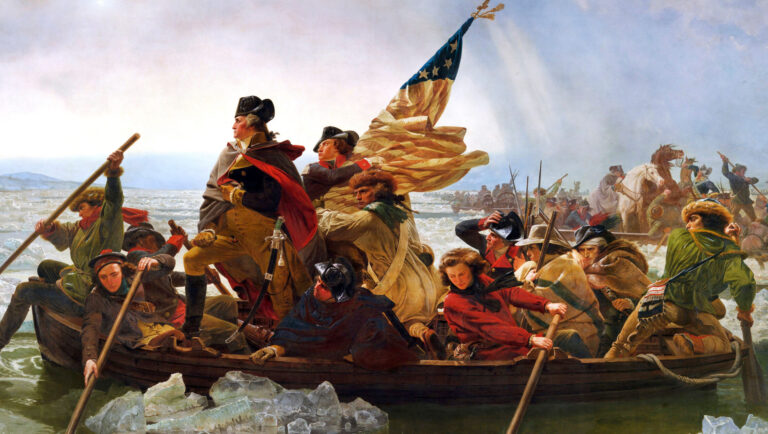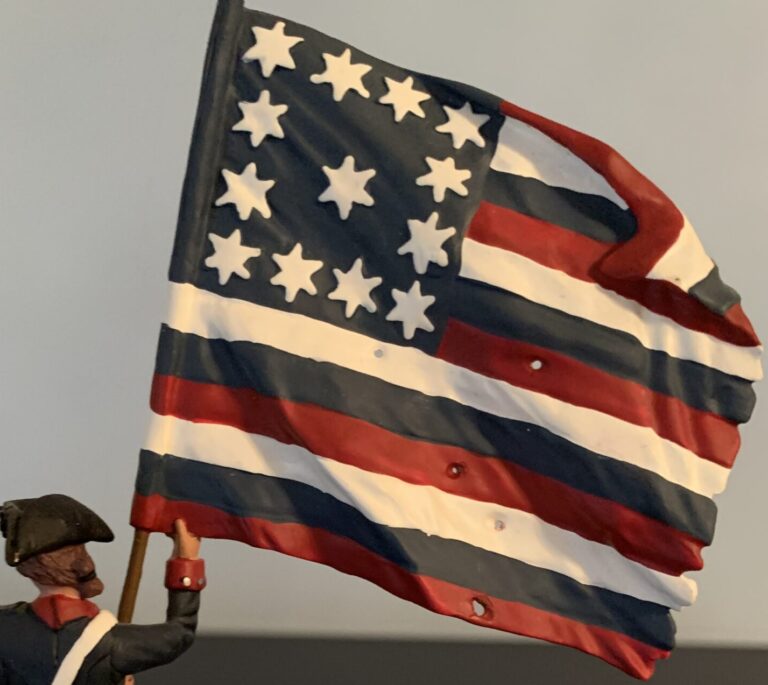Reminder: If you’re reading this in your email, you have to go to dpauthor.com and click on the Speaking of Which tab in order to view the actual blog post with the featured image.
In the Series Editors’ Introduction to each book in Westholme Publishing’s Small Battles Series, coeditors Mark Edward Lender and the late James Kirby Martin contend that the too-often ignored, smaller military actions impacted the course of the war for independence as much as, if not more than, the celebrated engagements that retain their indelible grip on our collective historical consciousness—Trenton, Saratoga, and Yorktown, being foremost among the latter. These more obscure encounters were typically fought at what Lender and Martin term the “grassroots level,” usually without the direct involvement of regular troops on either side, and without the presence of famed commanders such as George Washington, Nathanael Greene, William Howe, Charles Cornwallis, etc., but rather with Patriot militia opposing Loyalist units, and sometimes involving Native warriors who more-often-than-not sided with the British.[1]
Although smaller battles accounted for the predominant share of fighting, they have generally received little attention in popular narratives about the Revolutionary struggle, perhaps due to the fact that the “big names” were not present. Private Joseph Plumb Martin, in his classic memoir that represents one of the best-known primary accounts of army life then, lamented the lack of public regard for these events owing, in his opinion, to the absence of famous men. As a result, the combatants who faced off on these occasions linger in obscurity to this day. “Such circumstances and such troops,” he wrote, “generally get but little notice taken of them, do what they will. Great men get great praise, little men nothing. But it always was so and always will be.”[2]
In his majestic chronicle of the Revolution, Page Smith argues that because many of the minor engagements—to cite two examples, the Paoli massacre in September 1777 and the Battle of Waxhaws (also known as Buford’s Massacre) in May 1780—ended in disaster for the forces of rebellion, there ensued less incentive to recount them in great detail than would have been the case if the American side prevailed. But as he reminds us, the smaller actions were often as agonizingly contested as the larger ones, and those who fell in them were just as dead as the soldiers who perished in more famous battles.[3] According to Smith, there were thousands of smaller clashes—many of them between bands of Loyalists and Patriots—that involved no more than fifty men, and the records of those encounters, if preserved at all, lie buried in some local archive, comprise half-legendary tales passed on from one generation to another, or are briefly mentioned in a seldom-read newspaper. Nonetheless, these affairs embodied the grim circumstances of war endured by the great majority of Americans, for relatively few participated in the famous battles that occupy the center stage of historiography. As Smith puts it, most in the Revolutionary generation “labored in the wings and experienced in very acute form the hunger, the fear, the continual and corrosive anxiety, the bitter divisions between friends and neighbors, the scattered incidents of violence, the demoralizing effect of rumor that were part of the daily lives of Americans, patriot or Tory, during the years of the war.”[4]
The frightful aspect of America’s first civil war that was characterized by the ferocity of combat between opposing factions among the civilian population—a feature that has been attendant to other such contests here and abroad—is embodied in the bloody record of these little-known episodes, to the extent it is available to us. Friends, neighbors, family members, and relatives all became caught up in the brutality that often manifested itself in the smaller actions. This savagery may be at variance with the idyllic image of our path to independence embraced by traditional accounts and conveyed by popular memory across the generations, for as Holger Hoock points out, the perpetuation of a too-sentimental narrative of the conflict obscures the truth that it caused proportionately more suffering than any other in American history, except the Civil War.[5}
Margaret MacMillan notes that civil wars often assume the character and cruelty of a crusade because they are about the nature of society itself.[6] Thomas Brown, a Loyalist who led troops in the Southern theater from 1777 to 1781, echoed these sentiments from personal experience: “A civil war being one of the greatest evils incident to human society, the history of every contest presents us with instances of wanton cruelty and barbarity. Men whose passions are inflamed by mutual injuries, exasperated with personal animosity against each other, and eager to gratify revenge, often violate the laws of war and principles of humanity.”[7] Indeed, the violence perpetrated on both sides in the Revolution is the stuff of historical reality—the kind Henry Knox presumably had in mind when he wrote his wife in the aftermath of the first Battle of Trenton: “War, my Lucy, is not a humane trade, and the man who follows (it) as such will meet with his proper demerits in another world.”[8]
Notes:
[1] Series Editors’ Introduction, in David Price, The Battle of Harlem Heights, 1776 (Westholme Publishing: Yardley, PA, 2022), ix-x.
[2] Joseph Plumb Martin, Memoir of a Revolutionary Soldier: The Narrative of Joseph Plumb Martin (Mineola, NY: Dover Publications, 2006), 54.
[3] Page Smith, A New Age Now Begins: A People’s History of the American Revolution (New York: McGraw-Hill Book Company, 1976), 2:1124-1125.
[4] Ibid., 2:1125.
[5] Holger Hoock, Scars of Independence: America’s Violent Birth (New York: Crown, 2017), 11-17.
[6] Margaret Macmillan, War: How Conflict Shaped Us (New York: Random House, 2020), 42.
[7] Thomas Brown to David Ramsey, December 25, 1786, in The American Revolution: Writings from the War of Independence, 1775-1783, ed. John Rhodehamel (New York: The Library of America, 2001), 681-682.
[8] Henry Knox to Lucy Knox, January 2, 1777, in William S. Stryker, The Battles of Trenton and Princeton (Boston: Houghton, Mifflin and Company, 1898), 436.
And speaking of small things (as in books), Rescuing has been rescued:
For anyone who has, or knows anyone who has, tried without success to acquire a copy of my first book, Rescuing the Revolution, during its recent exile to the publishing wilderness (having been out of print for the last couple of years), please be advised that it has returned from Elba (for any Napoleonic-minded readers out there). My thanks to the Friends of Washington Crossing Park—the nonprofit that runs the gift shop at Washington Crossing Historic Park (WCHP) and oversees the historical/educational programming there—for publishing a new edition as a successor to the Knox Press release from 2016. This marks the Friends’ first-ever foray into this sort of activity, and credit is due to Roger Williams, Jennifer Martin, Larry Kidder, Guy Sava, and Michelle Flanagan for their contributions to this effort. I anticipate (hopefully) that signed copies of the new edition will soon be available at WCHP for purchase in person or online. It can also be ordered from Amazon or Barnes & Noble.








